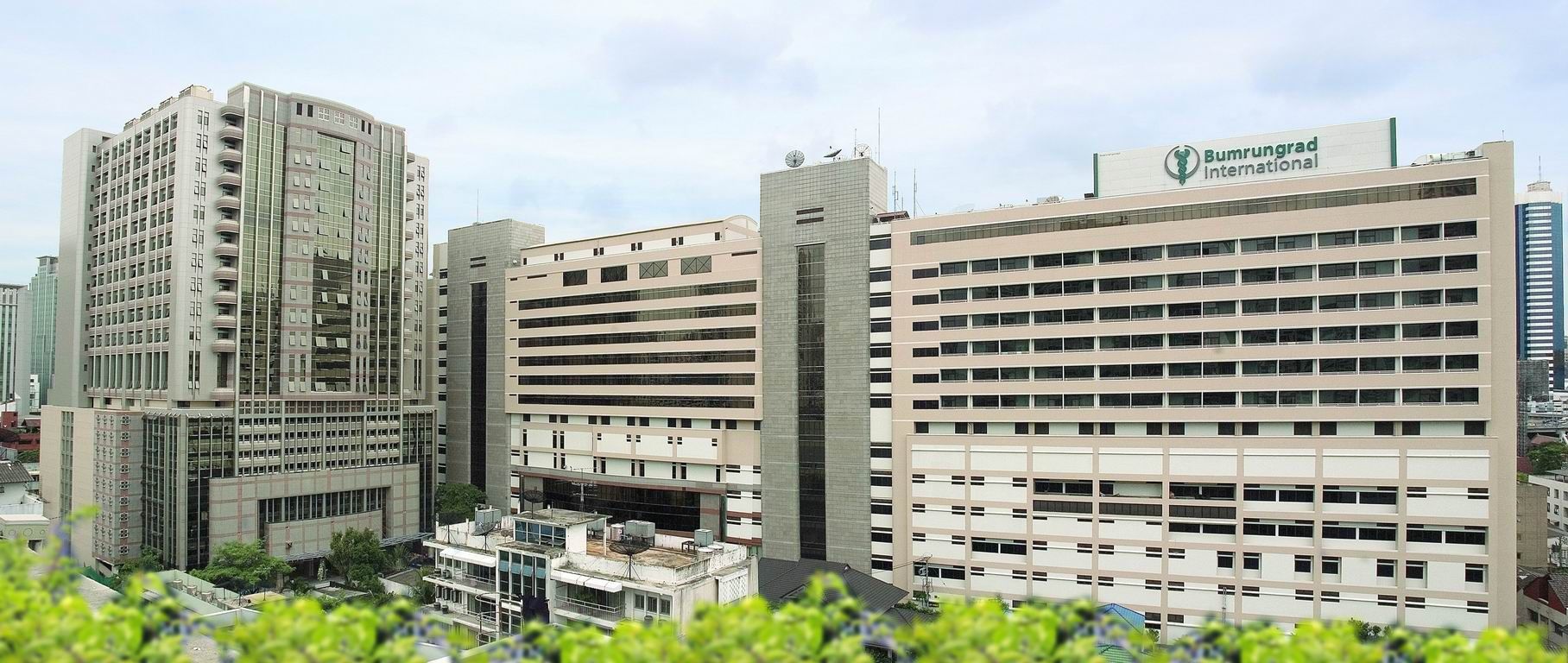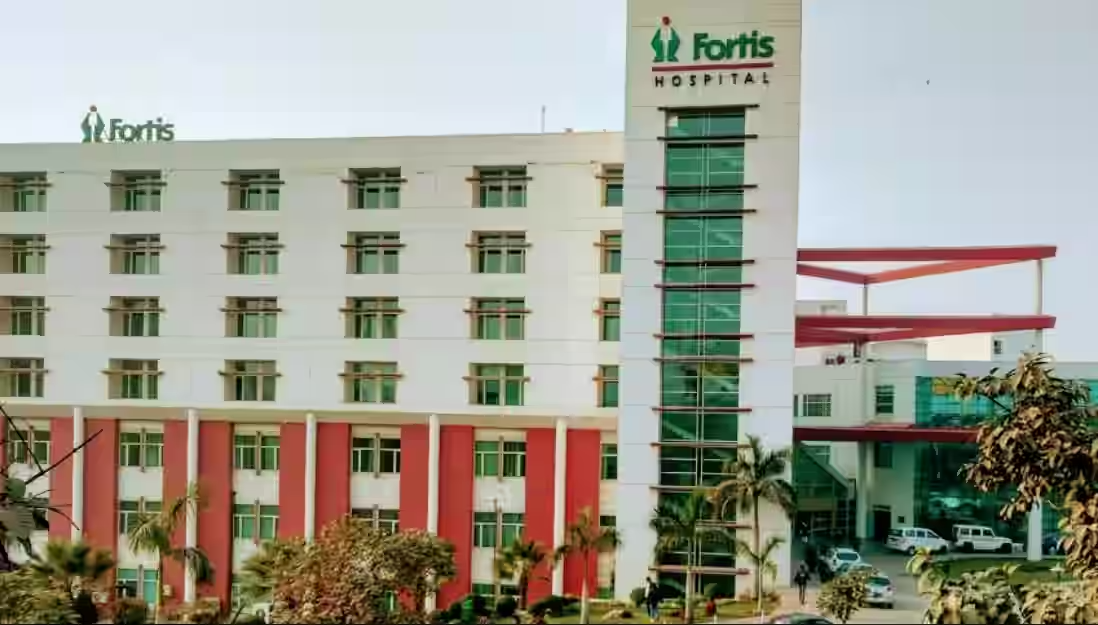Oncology
Neuroblastoma
Neuroblastoma
Neuroblastoma treatment in India offers world-class pediatric oncology care with advanced therapies, expert specialists, and affordable options for international patients seeking recovery.
Neuroblastoma treatment in India
Neuroblastoma is a cancer type that has originated out of immature nerve cells usually located in the adrenal glands, but may also be found in the neck, chest, abdomen or spine. It mostly occurs in children whose age is usually below 5 years.
The treatment depends on such factors as:
- Age of the child
- Stage of the cancer
- Tumor biology (genetic markers, MYCN amplification)
- Overall health
Main Treatment Options
Surgery
- Goal: Debulking. Debulk the tumor.
- Indications of use: When the tumor is local and resectable, it is often the initial move.
Chemotherapy
- Purpose: Reduces tumors prior to surgery (neoadjuvant) or eliminates the residual cancer cells after surgery (adjuvant).
Common drugs used:
- Cyclophosphamide
- Doxorubicin
- Vincristine
- Cisplatin
- Etoposide
- Multidrug chemotherapy is usually intensive in the case of high-risk neuroblastoma.
Radiation Therapy
- Purpose: Destroy cancer cells which cannot be destroyed by surgery or to manage metastasis.
- Routinely employed: In case of high-risk or residual tumors.
- Types: External radiation or local radiation such as MIBG therapy.
MBG Therapy (Metaiodobenzylguanidine)
- Purpose: Treatment of neuroblastoma cells with radioactivity.
- Indications: High-risk or relapsed neuroblastoma.
- Mechanism: MIBG is taken up in cancer cells and provides local radiations.
Immunotherapy
- Function: Enhance the immune system to fight cancer.
Common drugs:
- Dinutuximab (anti- GD2 antigen on neuroblastoma cells)
- Usually used together with cytokines, such as GM-CSF and IL-2.
- Used: Usual occurrence in high risk cases after chemotherapy and stem cell transplant.
Stem Cell Transplant (Autologous)
- Utility: Replacement of bone marrow following high dose chemotherapy.
- Indications: High-risk neuroblastoma, typically in the post-initial-chemotherapy period.
- Advantage: Takes advantage of the fact that more cancer cells can be killed by using higher doses of chemotherapy.
Targeted Therapy
- Purpose: Genetic mutation/pathway-specific tumor-cell drugs.
Examples:
- ALK inhibitors (with ALK mutation in tumors)
- Other clinical trial agents that are undergoing experiments.
Risk-Based Approach
Neuroblastoma is classified into:
- Low-risk: Can be treated with surgery alone; prognosis is excellent.
- Intermediate-risk: Moderate chemotherapy + surgery.
- Risks: Intensive multi-modal (chemo + surgery + radiation + immunotherapy + stem cell transplant) therapy.
Supportive Care
- Pain management
- Prevention of infection (particularly in the post chemotherapy period)
- Nutrition support
- Child and family emotional and psychological support.
New and Adoptive Therapies
- New immunotherapies and CAR-T cell therapy, as well as targeted drugs, are undergoing clinical trials.
- Trials in early stages can be contemplated in case of relapsed or refractory neuroblastoma.
Best hospitals for neuroblastoma in India
- Artemis Hospital, Gurgaon
- Medanta-The Medicity, Gurgaon
- Fortis Memorial Research Institute, Gurgaon
- Max Hospital, Saket
Factors Affecting Cost of neuroblastoma treatment in India
Treatment of neuroblastoma in India may have an extremely high cost depending on a number of factors including the stage of the disease, treatment modalities, choice of hospital, and consideration of patients. Here's a detailed breakdown:
Stage & Risk Category
- Low-Risk: This is usually surgery or low dose chemotherapy. Costs are relatively lower.
- Intermediate-Risk: It involves surgery with chemotherapy. The costs are escalated through further treatment sessions.
- High-Risk: Is a multifaceted treatment that entails surgery, several chemotherapy cycles, radiation treatment, stem cell transplant, and immunotherapy. This category is the most expensive that could cost 1015 times higher than low-risk cases.
Modalities of treatment and costs of treatment
- Surgical Removal of tumor: This is more expensive, depending on the complexity and the hospital.
- Chemotherapy: The cost of each cycle was lower. The overall price will be determined by the required number of cycles.
- Radiation Therapy: It is cheaper on a session-to-session basis than chemotherapy. Some more sophisticated methods such as Proton Therapy may be costly.
- Stem Cell Transplant: A transplant with autologous is more expensive whereas an allogeneic transplant can be cheaper.
- Immunotherapy: Drugs, such as dinutuximab, may increase the overall price.
- Diagnostic Tests & Imaging: More expensive tests can include MRI, PET-CT and bone marrow biopsy.
Duration and Complexity of Treatment
- The treatment of high-risk neuroblastoma usually takes 12-18 months or more with several hospitalizations, ICU, and follow-up imaging. Long-term care and complicated treatment needs lead to increase in cost.
Hospital & Location
- Private Hospitals: Hospitals such as Medanta, Artemis and Max Saket in metropolitan cities would be more expensive because of superior infrastructure and special care.
Doctor’s Expertise & Team
- Multidisciplinary teams and experienced pediatric oncologists have the ability to work on the outcomes of treatment. Their services may be more costly but they have the potential of saving the recurrent surgeries and decreasing the complications and hence cost are saved in general.
Supportive & Ancillary Care
- The supportive care costs, such as ICU hospitalization, infections, nutrition, physiotherapy, and psychological assistance, may have a great influence on the total cost of treatment.
Patient Factors
- Age & Weight: Affect drug dosage and transplant needs.
- Response to Therapy: Patients who receive salvage therapy or intend to receive more cycles might have increased costs.
- Comorbidities & Complications: Alternative conditions such as infections or relapse can cause the expenses.
Advanced neuroblastoma therapy for children
Currently, treatment of high-risk or relapsed neuroblastoma in children has undergone considerable development during the past years, and the novel methods have been introduced to improve the effectiveness of the treatment and increase the survival rates. The following is the list of the most promising advanced therapies:
Immunotherapy
- Anti-GD2 Monoclonal Antibodies (e.g., Dinutuximab): The antibodies are used to attack GD2 protein, which is found on the cells of neuroblastoma, and label them to destroy them. They have been shown to be better when used together with cytokines such as GM-CSF and interleukin-2 in high-risk patients.
- Hu14.18K322A Antibody: The antibody is an engineered antibody that has shown an improved tumor response when combined with the regular chemo-therapy regimens in clinical trials.
- Chimeric Antigen Receptor T-cell: CAR-T Therapy: CAR-T therapy is a treatment that involves the genetic modification of T-cells in a patient to attack cancer cells. Of significant concern, a noteworthy case was that of a patient who was in remission during 18 years after receiving CAR-T therapy in neuroblastoma.
MIBG (Metaiodobenzylguanidine) Radiotherapy
- MIBG therapy involves radioactive iodine, which uptakes into the neuroblastoma cells. This type of radiation treatment is especially successful when it comes to relapse or refractory neuroblastoma.
Stem Cell Transplantation and High-Dose Chemotherapy
- A typical consolidation therapy of high risk neuroblastoma is high-dose chemotherapy and autologous stem cell transplantation. The purpose of this approach is to eliminate remnant cancerous cells and replace the normal bone marrow.
Retinoid Therapy
- Retinoids are employed after therapy to clear any microscopic residual disease and lower chances of relapses (13-cis-retinoic acid).
Adjunctive Therapies and Clinical Trials
- New therapies involve specific gene mutations or pathway targeted therapies in neuroblastoma. The effectiveness of these novel agents is under testing in clinical trials.
Personalized Medicine
- The development of genetic and molecular profiling enables personalized treatment strategies to be based on the distinctive aspect of each tumor, which may achieve better results and reduce the side effects.
Top oncologists for neuroblastoma in India
- Dr. Aditya Gupta
- Dr. Kunjahari Medhi
- Dr. Vikas Dua
- Dr. Pramod Kumar Julka
Conclusion
Neuroblastoma is a complicated childhood cancer which needs a multidisciplinary approach to achieve the best results. The treatment plans depend on the risk category and stage of the disease. Cases that are low risk can usually respond to surgery or mild chemotherapy. Middle-grade cases usually have to be operated and chemotherapy undertaken. The risk cases are those that demand aggressive multi-modal treatment, which involves chemotherapy, surgery, radiation, stem cell transplant, and immunotherapy. Anti-GD2 immunotherapy, MIBG radiotherapy, CAR-T therapy and personalized targeted therapy are recent developments that have greatly enhanced the survival rate of the high-risk and recurring neuroblastoma.
Neuroblastoma treatment in India GetWellGo
GetWellGo is regarded as a leading supplier of healthcare services. We help our foreign clients choose the best treatment locations that suit their needs both financially and medically.
We offer:
- Complete transparency
- Fair costs.
- 24 hour availability.
- Medical E-visas
- Online consultation from recognized Indian experts.
- Assistance in selecting India's top hospitals for Neuroblastoma treatment.
- Expert neurosurgeon/neuro-oncologist with a strong track record of success
- Assistance during and after the course of treatment.
- Language Support
- Travel and Accommodation Services
- Case manager assigned to every patient to provide seamless support in and out of the hospital like appointment booking
- Local SIM Cards
- Currency Exchange
- Arranging Patient’s local food
FAQ
What is the prognosis?
- Low-risk: >95% survival rate
- Intermediate-risk: 80-90 percent chance to survive.
- High risk: 40-50 survival rate, however, improved treatments are increasing the survival.
- Treatment response, biology of tumor and age and stage are all determinants of prognosis.
Can neuroblastoma relapse?
- Yes, particularly when it is the high risk cases. Neuroblastoma can recur and this warrants MIBG therapy, immunotherapy or clinical trial.
Are there new or innovative treatment?
- Yes. Recent advances include:
- Anti-GD2 immunotherapy
- CAR-T cell therapy
- MIBG targeted radiotherapy
- Stem cell rescue High-dose chemotherapy.
- Tumor specific treatment therapies
How long does treatment last?
- Low-risk: A few weeks to months
- Intermediate-risk: A number of months.
- High 12-18 months or more, with several stages of therapy
TREATMENT-RELATED QUESTIONS
GetWellGo will provide you end-to-end guidance and assistance and that will include finding relevant and the best doctors for you in India.
A relationship manager from GetWellGo will be assigned to you who will prepare your case, share with multiple doctors and hospitals and get back to you with a treatment plan, cost of treatment and other useful information. The relationship manager will take care of all details related to your visit and successful return & recovery.
Yes, if you wish GetWellGo can assist you in getting your appointments fixed with multiple doctors and hospitals, which will assist you in getting the second opinion and will help you in cost comparison as well.
Yes, our professional medical team will help you in getting the estimated cost for the treatment. The cost as you may be aware depends on the medical condition, the choice of treatment, the type of room opted for etc. All your medical history and essential treatment details would be analyzed by the team of experts in the hospitals. They will also provide you with the various types of rooms/accommodation packages available and you have to make the selection. Charges are likely to vary by the type of room you take.
You have to check with your health insurance provider for the details.
The price that you get from GetWellGo is directly from the hospital, it is also discounted and lowest possible in most cases. We help you in getting the best price possible.
No, we don't charge patients for any service or convenience fee. All healthcare services GetWellGo provide are free of cost.
Top Doctors for Oncology
Top Hospitals for Oncology
Contact Us Now!
Fill the form below to get in touch with our experts.







